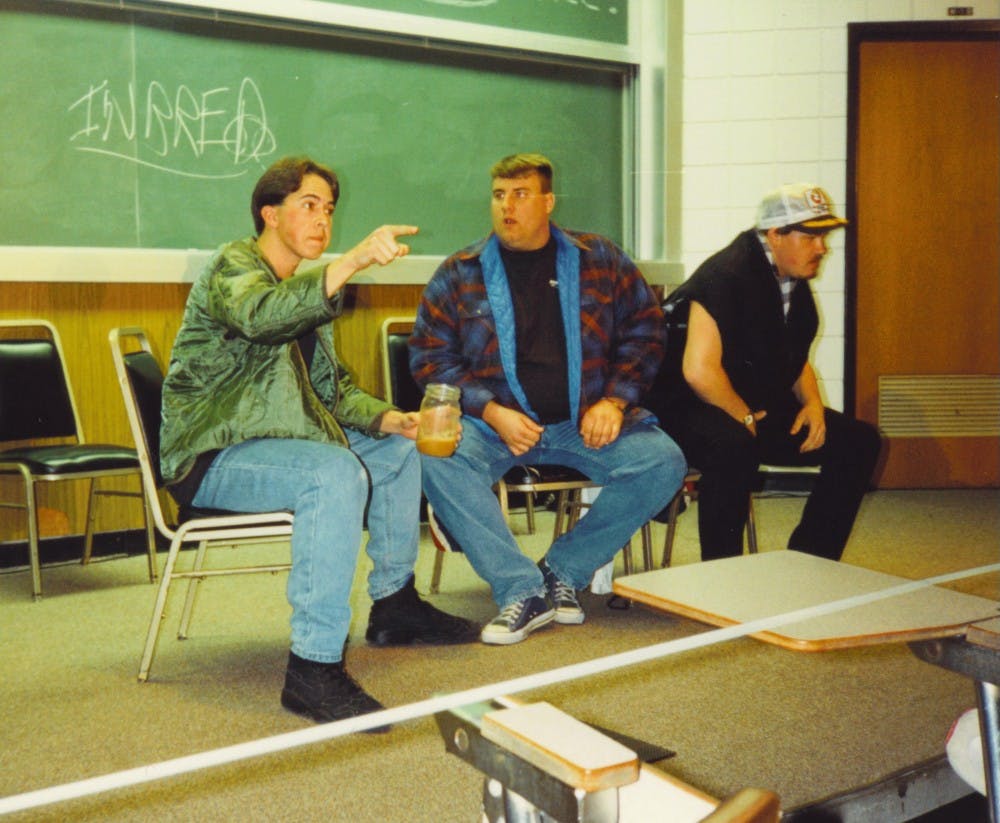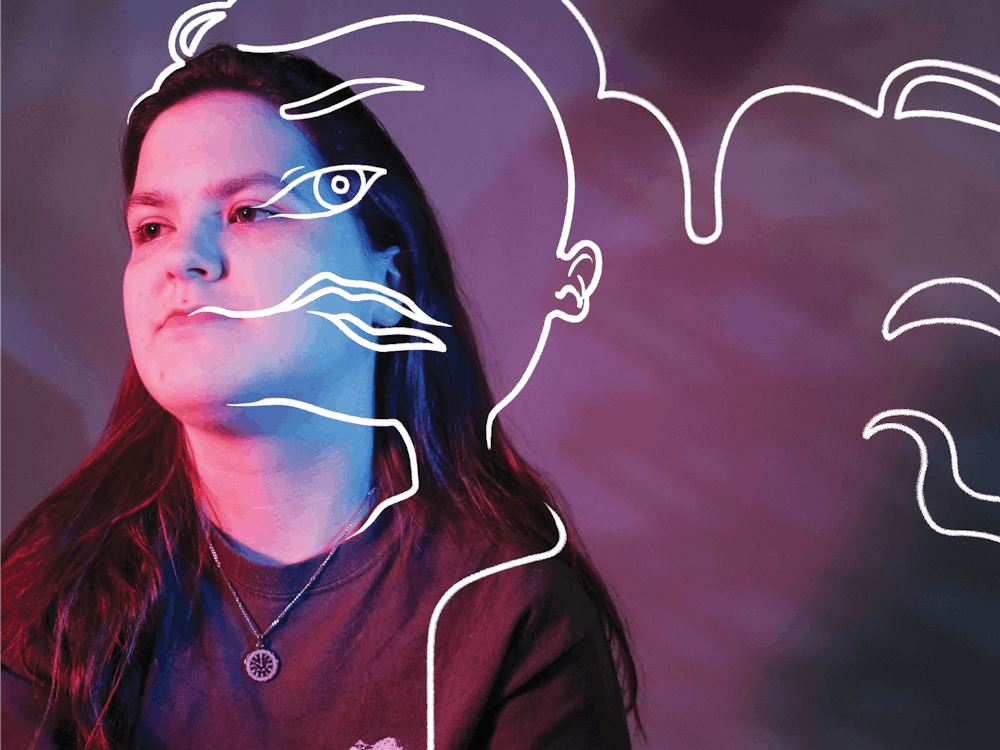Nick Siano is a junior telecommunications and journalism major and writes "Nick and Tired" for the Daily News. His views do not necessarily agree with those of the newspaper. Write to Nick at ncsiano@bsu.edu.
Wide-eyed and full of wonder isn’t how I’d describe the first time I wandered into the activity fair on campus. Claustrophobic, sweaty and angry at people stopping every two steps is far more realistic.
But tucked away in a corner was an organization’s trifold that looked like it was slapped together twenty minutes before the event. A hastily-written sheet of computer paper gave the organization a name: ABSO Improv Comedy.
Memories of watching “Whose Line is it Anyway?” lingered on my mind, and I knew I wanted to try out. I performed a bit in high school by way of speech and debate, but I imagined the spontaneity of improvisational comedy as this Wild West of performing.
I was used to putting hours into building characters. Dialects had to be perfect. Mannerisms were practiced until they felt natural. But improv was different. No script. No idea what to do or who to be. Everything relied on a suggestion from the audience.
It’s thrilling. Improv pushes you out of your comfort zone and into ridiculous, zany situations. As a performer, it’s your job to agree with these situations and build on them.
This year marks my third year in the group, and through all of this time, I’ve learned that every rule central to improv has standing in the real world. After all, we improvise all the time in our lives whether it’s noticed or not.
 |
|---|
The most basic rule in improv is to agree. If a performer doesn’t agree with what their partner sets up in the scene, everything falls apart and you’re left with two people awkwardly standing there on stage, hoping someone saves them from the misery of being stared at by a silent audience.
At its core, agreeing is about respect. It begets an open mind, an environment for to-do lists to become a column of checkmarks and finished objectives. There’s always someone in group projects who feels the opposite.
“We can’t do that.”
“It won’t work, that’s impossible.”
And no one likes him. Innovation doesn’t come from doing the same thing a thousand times unchanged. It comes from going out on a limb and imagining new means.
Rule number two feeds into the first one. Don’t just agree with your partner. Build on what they said. Think about conversations you have. A compelling dialogue doesn’t happen based off of one-word answers, even if they’re in the affirmative.
Building is an extension of respect. It shows that two partners have trust in one another to continue a scene, instead of putting all of the weight of the scene on one person’s shoulders. In a professional setting, it takes away from our ego, and gives weight to other people’s opinions and perspectives.
Imagine the amazing returns when two people work together, especially if they have yet to up to that point.
Finally, and one of the rules most important to the real world: listen. Listening allows you to build scenes and confidently go into the next scene knowing the reality that your partners have created.
Not to mention, some of the funniest scenes come from miscommunications. And if you’re not listening, you can’t focus on that.
Getting away from your ego and sitting back in a discussion, and taking in everyone’s thoughts instead of blocking them out and screaming over them with your own, is the way to fuel a cooperative project. Every idea has weight and contributes to the final product.
Three years in this program and I still get a thrill every time I go to perform. Being able to take time away from classes and work to have a family that creates amazing scenes and long-running jokes with is every ounce as gratifying as I thought it would be at that first activity fair.
I’m even gladder that after school, when I imagine I won’t have time to continue pursuing improv, I will have gleaned some of the most important skills from it that make me a better person.
So go out. Find your outlet away from what you’re used to. Just imagine the things you can create.





